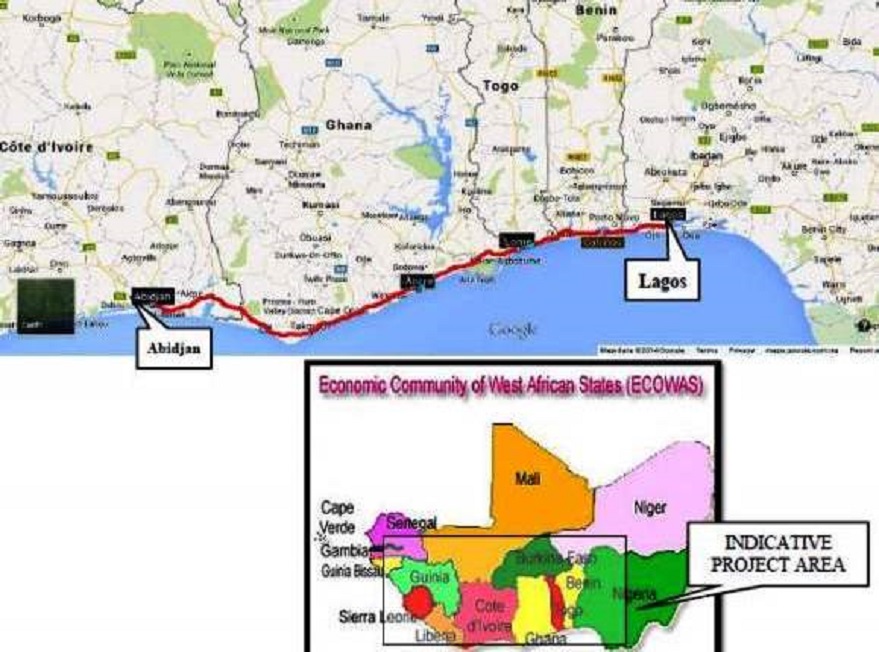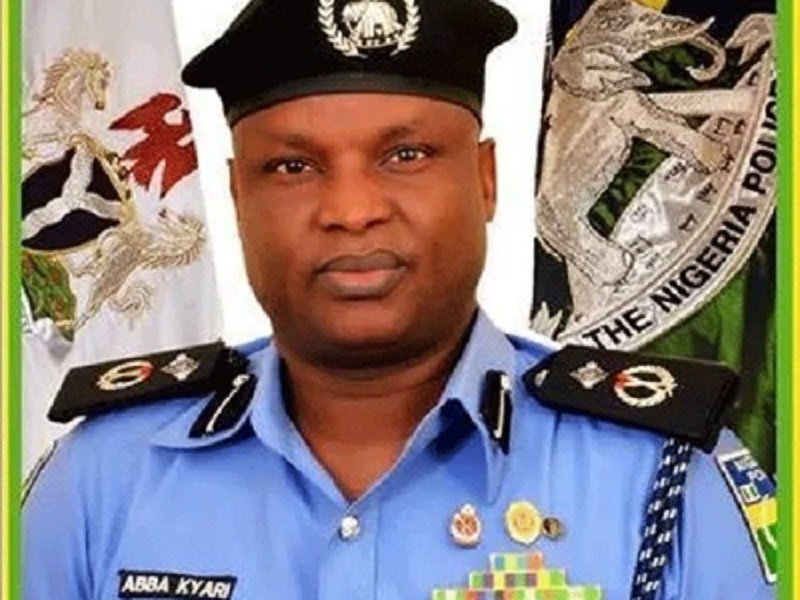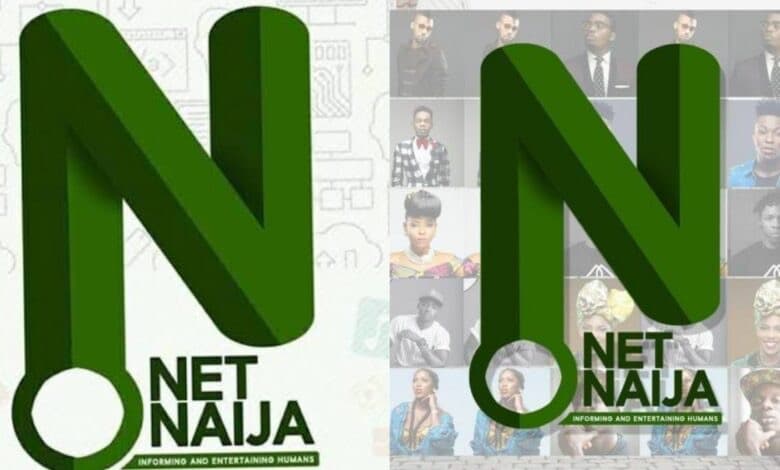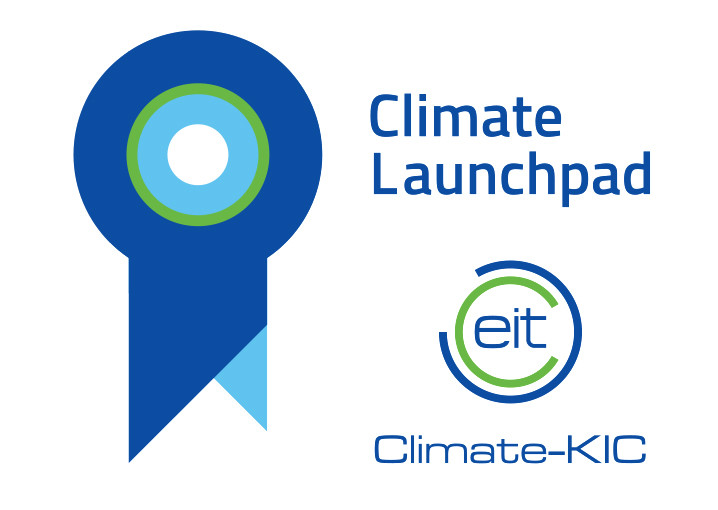General
Abidjan-Lagos Highway Could Be West Africa’s Game Changer

By Adedapo Adesanya
Amid recent political turmoils like military coups and the spate of internal terrorism that has seized the region, one of the many good things to look forward to in West Africa is the 1,081 kilometres highway that will soon link Abidjan and Lagos.
Once achieved, the $15.6 billion road project will connect five West African countries – Nigeria, Benin, Togo, Ghana, and Ivory Coast, and this spells a big opportunity to transfer population and geographical advantages into economic prosperity.
The purpose of this Abidjan-Lagos highway is to strengthen trade and integration in West Africa, in particular by providing maritime port access to landlocked countries. It is also expected to join other corridors along the north-south axis and connects landlocked countries such as Burkina Faso, Mali, Niger and Chad.
The ECOWAS Commission had, on behalf of five countries, requested the support of the African Development Bank (AfDB) in financing the Abidjan–Lagos highway corridor project.
The lender recently announced that it has secured $15.6 billion to fund the game-changing infrastructure which is set to be completed in 2025.
Bingerville in Abidjan and Mile 2 in Lagos will be the locations for the two ends of the large dual, 3-lane corridor project. The highway has three parts, the Abidjan – Takoradi section of 295 kilometres; the Takoradi – Akanu (both in Ghana) section of 466 kilometres; and the Noepe (in Togo) – Cotonou – Lagos section, of 320 kilometres.
The project, when fully implemented, is expected to promote the free movement Agenda of ECOWAS, generate social and economic activities, promote cross-border trade and integrate the economies of countries in the region.
The five countries that the highway passes through have a combined GDP of $590 billion and a population of 284 million.
People and goods will be able to move easily between seaport cities and their landlocked neighbouring cities. It will also be easier to capitalise on the Gulf of Guinea to mobilize movements and trades.
Lagos, Nigeria’s commercial capital with more than 15 million people will be open to opportunities to further boost its revenue generation capabilities.
Abidjan with five million people, the Ghanaian cities of Takoradi and Accra have more than three million, while Cotonou with less than three million will get to enjoy these benefits.
It could also be what turbulent states like Niger, Burkina Faso and Mali need at the moment following tumultuous events like political instability and insurgency coupled with threats of economic drought and growing civil unrest.
Members of the West African bloc in the coming years need to sign treaties and arrangements that will boost cross-border trading and travel. This will allow the growing tech industry, potential manufacturing sectors, new industrial cities, and logistic hubs to find footings.
This is particularly needed as the African continent is expected to be home to at least 25 per cent of the world’s population by 2050, compared with less than 10 per cent in 1950.
This will particularly be a necessity for West Africa as other African regional blocs are making similar moves.
The East African Community (EAC) has six cross-border road projects, totalling 1504 kilometres, while the Economic and Monetary Community of Central Africa (CEMAC) – which groups central African nations – and Southern African Development Community (SADC) also have similar programmes.
Last week, the Democratic Republic of Congo joined the EAC immediately upgrading the region’s GDP by 30 per cent to $250 billion, a move that shows that integration will be crucial to the continent’s development.
General
Court Acquits Abba Kyari of 23-Count Asset Declaration Charge

By Adedapo Adesanya
Justice James Omotosho of the Federal High Court in Abuja has discharged and acquitted the suspended Deputy Commissioner of Police Abba Kyari of a 23-count charge of alleged non-declaration of assets filed against him by the National Drug Law Enforcement Agency (NDLEA).
Mr Kyari is being charged alongside his two brothers, who were accused of swearing to false affidavits to conceal the origin of some properties.
The court in its judgment held that the NDLEA failed to provide sufficient evidence to prove its case against the defendants, which is mostly the non-declaration of land properties.
Justice Omotosho noted that proving ownership of landed properties can be done through traditional history, title, acts of possession and possession by connection.
The prosecution did not provide any of these documents to show that the said properties located in Fountain Estate, Kasana, which belong to Ramatu Kyari, are truly owned by the police officer.
Also, the court held that the prosecution did not provide the same material evidence linking Mr Kyari to properties in Linda Choko Road, Asokoro and also Maiduguri in Borno State.
Mr Kyari, in his defense said the properties in Borno belonged to his father, which he left for him and his siblings.
It was judged that the prosecution did not prove otherwise, adding that the prosecution charged Mr Kyari’s brothers in bad faith for alleged conspiracy, which they failed to prove.
General
NCC Arraigns Netnaija’s Emma Analike Over Alleged Copyright Infringement

By Modupe Gbadeyanka
The chief executive of Netnaija Media Enterprises, Mr Emmanuel Analike, has been arraigned before a Federal High Court sitting in Abuja by the Nigerian Copyright Commission (NCC).
The suspect appeared before Justice Suleiman Liman on Wednesday over allegations bordering on copyright infringement.
He was accused by the NCC of using his online platform to make movies and others not belonging to him available for users to download on the internet.
According to the agency, Mr Analike has infringed copies of audio-visual materials distributed online via his website for online users. Netnaija is an online movie and music download site.
The prosecution counsel, Ms Gladys Isaac-Ojo, who works with the NCC, told the court that the defendant committed an offence contrary to and punishable under Section 44 (1) (a) of the Copyright Act, 2022.
However, Mr Analike pleaded not guilty to the charges preferred against him, prompting his counsel, Nnemeka Ejiofor, seek his bail.
The lawyer informed the court that the application was filed on Monday and supported by 23 paragraphs of affidavits and a written address.
But the judge refused to give a bench ruling and adjourned the ruling of the bail application to Monday, March 9, 2026, ordering the remand of the Netnaija chief in Kuje Correctional Centre.
General
Entries Open for ClimateLaunchpad Green Business Ideas Competition

By Modupe Gbadeyanka
Entries for the 2026 edition of the world’s largest green business ideas competition, ClimateLaunchpad, have opened.
In 2025, the programme, organised by Climate KIC, received over 2,700 applications from 40 countries. The winning ventures gain prize money, investor connections, and access to a global cleantech network.
This year’s edition is expected to be bigger and better, with climate innovators, green venture builders, and entrepreneurs from around the world given the opportunity to apply.
Since its inception in 2014, the programme has supported nearly 5,000 ideas across 97 countries, and this year, it is expanding its presence in Asia with Singapore hosting both the regional final and global grand final for the first time.
Participants move through several stages, including an initial mini-course to refine the concept, an intensive multi-day Boot Camp led by expert trainers, targeted coaching to perfect value propositions and investor pitches, national and regional finals, and a place at the global grand final, with prizes and access to a global climate network.
“Strengthening ClimateLaunchpad’s presence in Asia marks a profound new chapter for this programme and for the climate innovation movement more broadly. Asia is where so much of the world’s climate and nature future will be shaped, through business leadership, public-private partnerships and long-term strategic thinking,” the chief executive of Climate KIC, Kirsten Dunlop, stated.
“We look forward to supporting this momentum with new business ideas and innovation ecosystem collaborations across more than a dozen countries.
“This expansion opens space for deeper cross-cultural connections and for first-time founders to turn sparks of imagination into solutions that serve both people and planet,” Dunlop added.
Also commenting, the chief executive of Better Earth Ventures, Ms Rebecca Sharpe, said, “We are proud to host ClimateLaunchpad’s regional and global grand final in Singapore and to convene an international group of climate entrepreneurs from more than 50 countries.
“Climate solutions are emerging from every corner of the world, and bringing them together creates the kind of cross-border exchange and collaboration this moment demands. Our focus is to ensure early-stage founders have the structure, ecosystem access and support needed to move from idea to credible impact.”
-

 Feature/OPED6 years ago
Feature/OPED6 years agoDavos was Different this year
-
Travel/Tourism10 years ago
Lagos Seals Western Lodge Hotel In Ikorodu
-

 Showbiz3 years ago
Showbiz3 years agoEstranged Lover Releases Videos of Empress Njamah Bathing
-

 Banking8 years ago
Banking8 years agoSort Codes of GTBank Branches in Nigeria
-

 Economy3 years ago
Economy3 years agoSubsidy Removal: CNG at N130 Per Litre Cheaper Than Petrol—IPMAN
-

 Banking3 years ago
Banking3 years agoSort Codes of UBA Branches in Nigeria
-

 Banking3 years ago
Banking3 years agoFirst Bank Announces Planned Downtime
-

 Sports3 years ago
Sports3 years agoHighest Paid Nigerian Footballer – How Much Do Nigerian Footballers Earn












